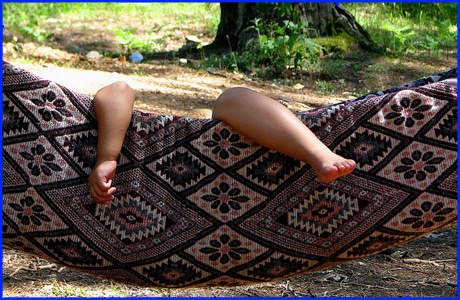
The idea of removing morbidly obese children from their parents and putting them in foster homes is a highly emotional issue. When does overfeeding become child abuse? Is government intervention justified?
We looked at some of the questions and answers last time, and mentioned an article that comes highly recommended, “Can childhood obesity warrant child protective services?,” by Dr. Yoni Freedhoff of the Bariatric Medical Institute in Ottawa, Canada.
He goes back to the source, the editorial “State Intervention in Life-Threatening Childhood Obesity,” written by Lindsey Murtagh, J.D., M.P.H., and David S. Ludwig, M.D., Ph.D., which appeared in the Journal of the American Medical Association and got everybody all upset.
Freedhoff says,
The authors weren’t writing about removing kids in homes with excessive junk food and XBOXs, and a few pounds that some chart or physician might suggest they ought to lose. The authors were writing about ‘severe pediatric obesity’, which they defined as a BMI beyond the 99th percentile, and where interventions designed to help those kids’ parents failed to help their children.
It surprises him that Drs. Murtagh and Ludwig talk about the detrimental physical health effects of obesity, but not the emotional impact of stigmatization and bullying. In considering the relative amounts of harm done to a child, he compares overfeeding to underfeeding. When a child is dangerously malnourished, most people agree that intervention is called for.
Dr. Freedhoff is also concerned that the public does not seem to understand what a long and complicated process it is to remove a child from the home on the grounds of obesity. People seem to envision their children being forcibly abducted in a dawn raid, but it isn’t so. In addition to his own experience in treating obese children, the doctor has the advantage of consultation privileges with a former child protection worker — his wife.
To justify this kind of intervention, he says, the government must go through a series of steps — interviews and tests; the ruling-out of obesogenic medical conditions; sessions with teams of pediatric obesity specialists; and much more. Foster care is not a permanent separation, and once a child is in foster care, observing which way the weight goes would be a strong indicator.
Even if the birth family is at fault, they would probably be given further education and another chance. Permanent removal of the child would be a last, last resort. Dr. Freedhoff says,
To look at the issue of child protection broadly, for me, as a father, as physician and a member of society, if there’s a family actively engaging in any behaviour that can dramatically and potentially permanently harm their child, and if with counselling and intervention they don’t modify that behaviour, then yes, I think state intervention is appropriate.
Dr. Pretlow says,
The Yale study published in April showed that ‘People who are compulsive eaters show similar activity in the same brain regions as people who are addicted to drugs or alcohol…’
In light of this striking similarity, should severely obese kids therefore be removed from their parents, analogous to removing kids from drug houses? In both examples, there is an overriding consideration: severely obese kids may not be unhappy with their home life and may be traumatized by removal from it, in contrast to other types of child abuse. However, studies have shown that severely obese kids have the happiness level of kids with cancer. Even so, linking the home junk food environment to the general unhappiness of the severely obese child may be difficult to establish in the mind of the child and parent.
Your responses and feedback are welcome!
Source: “Can childhood obesity warrant child protective services?,” Weighty Matters, 07/14/11
Source: “Compulsive Eaters May Have ‘Food Addiction,’ Study Finds,”YaleMedicalGroup.org, 04/04/11
Image by Ozgur Mulazimoglu, used under its Creative Commons license.

 FAQs and Media Requests:
FAQs and Media Requests: 











